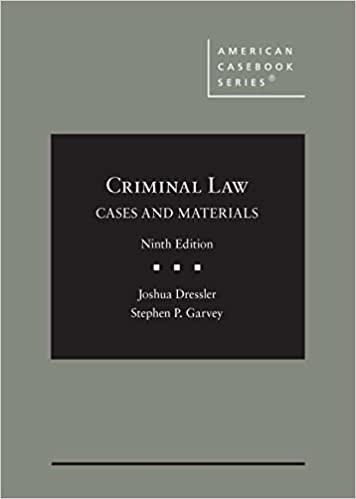Question
Most attorneys work in a law firm or otherwise work independently by establishing their own law firm. A notable example is Bert Fields (above), the
Most attorneys work in a law firm or otherwise work independently by establishing their own law firm. A notable example is Bert Fields (above), the well known entertainment attorney who has represented Tom Cruise for many years regarding multiple issues.
But not all attorneys work in law firms. A growing number of attorneys many of them find employment (and satisfying careers) working in governmental agencies and in private industry. For example,Halimah DeLaine (above) was appointed last year to the role of General Counsel for Google, Inc. In a corporate or business environment, the top attorney is given the title of General Counsel, though the title Chief Legal Officer (CLO) is starting to be used in certain circles.
The General Counsel is responsible for conveying legal issues in simple straightforward language that the company's executives can easily understand. He or she is often more than just an attorney, and if done properly, that individual is viewed as a key executive in the decision making process in identifyinglegal issues and ideally present legal and well as sound practical business solutions. The General Counsel exists in two worlds, legal and business and must be comfortable in both environments. Smaller companies typically don't have General Counsels given cost constraintsand so they rely on attorneys in law firms who serve in a similar role as an "outside General Counsel" for multiple companies.
Factual Background
For this first Discussion Forum, I want you to place yourself in the hot seat as the General Counsel for a prominent transportation/delivery company, Tom Cruise Delivery Service ("TCDS"). Your biggest competitors are as follows:
- United Parcel Service
- FedEx
- Amazon Prime Delivery
The business model for TCDS and its competitors are based upon the premise that speed of delivery is key. Many companies (including law firms) will pay a premium for the prompt (sometimes same day delivery) of packages. Delivery drivers have to make a lot of deliveries, and they have to do it on-time. To make those deliveries in the big cities, drivers sometimes have to park where the city doesn't want them to. This leads to parking in loading zones, parking for too long a time, or double parking in front of a delivery point. This results in a whole bunch of parking fines. In New York City alone, delivery services racked up $106 million in parking tickets in one year (and this was way back in 2006).
Margins are healthy and so are the profits. Tom Cruise, the Chief Executive Officer for TCDS comes to you as the company's general counsel. The cost of these parking tickets is a concern and he would like to avoid them where possible, but at the same time he does not want to change any business practices that will slow down the delivery of time sensitive packages (to do so would translate to a significant loss of business and profit).
Question Presented
In your capacity as TCDS' General Counsel, how would you respond to Tom Cruise's question (i.e., what would be your recommendation)? Please be sure to explain the logic behind your answer. In addition, I would ask that you also identify the legal and the business aspects of your response.
Step by Step Solution
There are 3 Steps involved in it
Step: 1

Get Instant Access to Expert-Tailored Solutions
See step-by-step solutions with expert insights and AI powered tools for academic success
Step: 2

Step: 3

Ace Your Homework with AI
Get the answers you need in no time with our AI-driven, step-by-step assistance
Get Started


